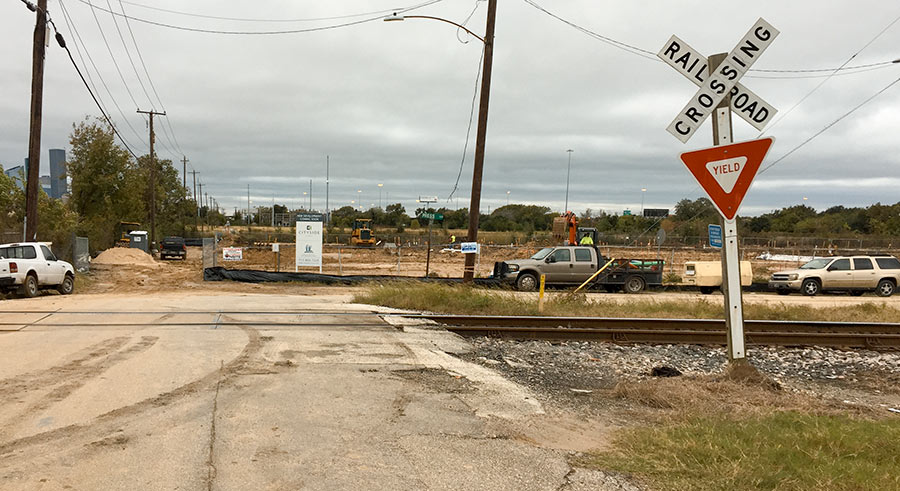HOUSTON-AREA MORTGAGE STORM SURGE: NOW A QUARTER UNDER WATER Another few months, another one of those studies from research firm First American CoreLogic — this one using data from the end of June. By that date, the firm says, 26.15 percent of all Houston-Sugar Land- Baytown-area mortgages were in a “negative equity” position. Add in the “up to their eyeballs” crowd of mortgage-holders who are within 5 percentage points of owing more than their homes are worth, and the figure rises to 33.86 percent. That’s a marked increase from the figures in the firm’s March study, which used data from September 2008. [First American CoreLogic; previously on Swamplot]



Oh, but it’s DIFFERENT here, right? ;-)
It is different here, not least because the loans are recourse.
The difference here is because the magnitude is much lower than other large markets.
Negative Equity isn’t bad if you plan to live in the home for a long time and you don’t look at the property as a potential quick turn around investment.
Planning to live in a house for a long time and being able to live in it a long time are two different thing. As jobs continue to be shed (and they will) those who are underwater can’t even move to follow jobs. They are in big trouble.
MikeRG points out one of the bigger risks of high property taxes and recourse loans – that local labor markets aren’t deep or diverse enough to deploy labor immobilized by housing obligations. The question as always will be whether the possibility becomes reality, and on what scale.
I believe Houston has become diverse enough and is dynamic enough that this won’t be a major problem here beyond anecdotal sob stories. I could be wrong about that, and that’s why I wish lenders were allowed to offer an option of a non-recourse loan in addition to the standard recourse loan.
The difference here is because the magnitude is much lower than other large markets.
______________________
Much lower or just more hidden?
I got that from a real estate analyst I know (not a realtor or HAR).
But anecdotal evidence of our market and Texas in general, developers are beginning to position themselves for new projects in the single family housing market.
Just from the firm I work at, we have a client wanting master planning on over 1000 acres just north of Austin. This would mean new construction would be available in about 2-3 years in Austin.
Clients with unfinished utility districts all around Houston are moving forward with new projects (which means house construction would be about 1.5 years away for our region).
DFW is a little slower. It’s partially due to the the vast amounts of smaller municipalities that permitted new developments across the area. It’s hard to keep track of all the new projects during the bubble so many developers couldn’t properly estimate the supply coming online. This is much easier in the Houston, San Antonio, and Austin markets.
San Antonio is expected to be the quickest rebounding metro of Texas from discussions with various analysts and developers mainly because the housing supply wasn’t produced in excess in the region.
Our workload is slowly building for land development projects while the public works sector has already taken a prominent role in pushing projects needing work to be performed.
Not trying to be snarky, but the builders seem to be ignoring the fact that all the fancy financing and securitzation of questionable mortgages that powered the housing bubble ain’t coming back. The foreigners and pension funds will no longer buy them.
Housing powered the economy during the boom. Now only the economy can power housing. Despite all the happy talk, no one who’s not trying to sell you stocks or real estate is saying that it is going to get substantially better anytime soon.
Despite all the happy talk, no one who’s not trying to sell you stocks or real estate is saying that it is going to get substantially better anytime soon.
___________________________
Some believe it is actually going to get substantially worse.
If that meant values were coming down and I wouldn’t get another 10% bump on my appraisal for the 15th year in a row, I’d be happy about it. But that’s not gonna happen.
If that meant values were coming down and I wouldn’t get another 10% bump on my appraisal for the 15th year in a row, I’d be happy about it. But that’s not gonna happen.
_______________
If enough people said “no” to the appraisal board and then the mediator and took it to court things might happen. Until then, well, everyone seems content to accept a 5% increase because they think it’s better than a 15% increase and each year everyone ends up with higher valuation which in the end as we are seeing finally is really overvaluation when the market no longer supports the valuation.
But you can’t tell HCAD that because HAR backs HCAD up. A judge, or two, might put a stop to it finally.